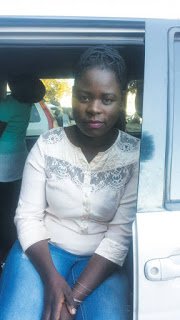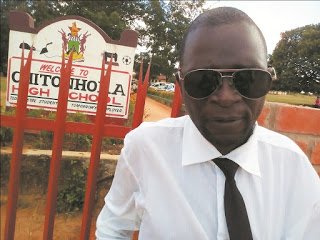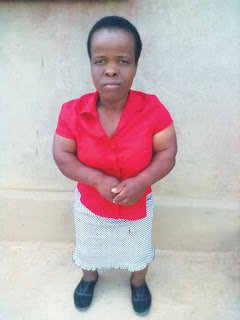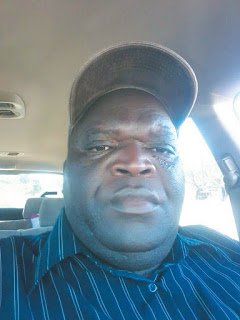Mainstream discourse concerning people living with disabilities has predominantly cast them as objects of pity whose livelihoods and wellbeing depends largely on the benevolence of those who are fully able-bodied. This line of thinking is born out of lack of understanding or appreciation of the complexities of the human body and its ability to adjust itself to suit circumstances to which it is subjected or in which it finds itself. It is often said that when one human sense is affected, the second gets sharper and makes up for the gap left by the first, a reason that perhaps explain the puzzling cognitive abilities of the visually impaired.
In many traditional African societies, disability is viewed through the lenses of superstition for example, if a child is born blind, the instinctive responses would be suspicions of witchcraft. The same is true for children who are born with albinism and other forms of physical defects. This, as a consequence, would lead to many stigmas that affect the victim’s growth potential, self-esteem as the victim’s ability to reach his/her fullest potential. It is, however, heartening that some of these problems are giving way to more progressive views on disability, thanks to the sustained efforts of government, the media, civil society, the digital age and, most importantly, people living with disabilities themselves.
TellZim News took time to speak to some people living with disabilities and recorded their success stories, their dreams and the challenges they face in different spheres of their lives.
Cheure is a qualified Shona and Literature in English teacher at Chitinhora High School, Ndanga, in Zaka. He is visually impaired and requires the services of an assistant to efficiently carry out his duties although experience has taught him to fulfil some of the job’s requirements on his own.
“I teach Shona and Literature in English from form one up to form six and I have been doing it for years now. I love the job which has enabled me to have a decent life with my family because had it not been for that, I would probably been no better than others who are finding the life very difficult.
“There are challenges, however, that I grapple with every day at work due to my condition. These include lack of materials that are friendlier to people who are visually impaired. I am given the same type of scheme books that is given to everybody else even though my work would be much easier if I get Braille material. I thank the government for giving me a personal assistant whom I work with closely to ensure that the children I teach get the best knowledge possible,” said Cheure.
He is a product of the University of Zimbabwe (UZ) where he graduated with a Bachelor of Arts (B.A) General degree in 1996. He began teaching the following year but it has not been a bed of roses for him since his days at university where, being blind, he would often find himself at the back foot.
“People should have awareness with regards to the needs of people living with disabilities because we are always a minority in all spheres of life because there are still problems in that regard.
“I myself need a special phone with the requisite software so that I can do my research well but I am finding it unaffordable. I also have been planning to go for my Masters for some time now but I haven’t been able to get enough money,” said Cheure.
Mugwenhi was born with low stature (also known as dwarfism), a physical condition characterised by severe stunted growth of the body. Of late, she has also been battling a growth which has developed in one of her eyes. A fairly bright pupil at school, Mugwenhi failed to complete her secondary school after the death of her father who was her breadwinner.
She stays in Mahusekwa, Marondera, where she has been trying to make something of her life after failing to sit for her ‘O’ Level examinations.
She, however, completed a one-year sewing course at Ruwa Rehabilitation Centre and she proudly holds a certificate in sewing.
“I noticed that you don’t have to just sit and wait for a miracle to happen in your life while giving the excuse that you are disabled. As you can see, I can work for myself if given an opportunity. That is why I decided to do a sewing course,” said Mugwenhi.
She said gaining skills is more difficult for the disabled that other persons chiefly because disabled people have less chances of making money to educate themselves.
“We face stigma wherever we go because we still have many people who don’t understand that nobody has chosen their physical appearances at birth. We are all products of a fate that we did not choose, whether good or bad,” said Mugwenhi.
With her sewing skills, Mugwenhi feels she has attained something in her life but says she has not been able to utilise those skills to make a living due to lack of resources.
“There are no jobs out there so my plans are to start my own small business. What I need is a sewing machine, some material and a little starting capital. I have all the energy and knowledge I need to run a viable small business and prove that disability is not inability,” said Mugwenhi.
She also said she needs some US$300 to undergo surgery to remove the growth in her eye.
Fovera was born physically challenged and at times requires a wheelchair to carry out some but not all of his daily tasks as he can drive himself to any place he wants to go.
His disability has not held back his resolve to be successful in life, being a qualified secondary school teacher and accountant who has many diplomas in such fields as financial accounting, cost management accounting and human resources. He worked as a bursar at the then Masvingo State University (MSU) before it was transformed to Great Zimbabwe University (GZU).
His Academic accomplishments also took him to South Africa where he landed a cushy job as the regional accountant for Protea Hotels between 2006 and 2015. He also formed Quickset Management Systems and became its principal consultant and managing director.
During his time in South Africa, he registered a disability NGO, Vuka Uzenzele which worked to empower people with all forms of disability.
Fovera is convinced that disability should not be an impediment against the dreams of individuals who are genuinely dedicated.
“Disability is an involved concept and it can only be pronounced when there are some functional limitations and that includes every living person. All of us are disabled in one way or the other but what differs is only the degree of disability because what one person can do with ease, the next person may struggle to do regardless of their physical condition.
“Let’s therefore destroy all the physical, attitudinal and environmental barriers that may inhibit the development of the best in us,” said Fovera.
He says his biggest challenge is exclusionary governance systems that tend to assume a paternalistic role when dealing with matters of disability.
“People living with disabilities must be involved in all disability policy formulation if we are to fight discrimination. We don’t want policies made for us but we want polies made by us.
“Let’s work to implement the disability clause in the constitution and let’s also have disability-friendly public places and amenities to improve access to them,” said Fovera.

Lucia Masauso
Being deaf in a country with very few people who understand Sign Language poses enormous challenges but that has not dampened the spirit of Masauso.
The young woman works as a programmes officer at Deaf Zimbabwe Trust, an organisation which works for the rights of deaf people.
She wrote her ‘O’ Levels last year and is planning to sit for all subjects she did not pass with the hope of go to university to study a course which will enable her to become an efficient advocate and ambassador for disabled people.
Her ultimate ambition, though, is to make positive impact in the world of people living with all forms of disabilities.
As is to be expected, hers is not a smooth sailing life as she had to deal and still has to deal with many obstacles along the way.
She cites communication barriers as one of the biggest challenge which people living with her condition have to fight and overcome every day.
“Most people I meet use oral language so it’s difficult to understand especially at home. It’s hard to go into a shop and order what you want let alone walk freely.
“I live in Mabvuku and have lost count the number of times I almost got run over by cars so motorists must understand that there are deaf pedestrians who cannot hear the hoot of a car no matter how close the car is,” said Masauso.
She pointed out that disabled people face discrimination in the family and in the community and called upon government to invest in people living with disabilities so that they too can get equal treatment and support they need.
“We need to be empowered and not to be seen as charity cases. We need more schools for the disabled all over the country with experienced teachers who know about disability. Our rights should be respect not abused.
“When I was at Mount Pleasant High School, the teachers did not use Sign Language. We the students had to teach our teachers Sign Language. I remember our Maths teacher used to force us to speak after him. Our science teacher would leave us seated the whole lesson. We had to beg others for notes and at times, we would spend two weeks without writing notes.
“I would take every available chance to go to the library to read novels because during that time, I had become so obsessed with reading that I would skip some lessons and go to the library to read. I did not understand most subjects apart from English and History.
“At Deaf Zimbabwe Trust I was able to understand because there is an interpreter. Things are easy to understand if you are communicating with someone who understands your language,” Masauso said.local



